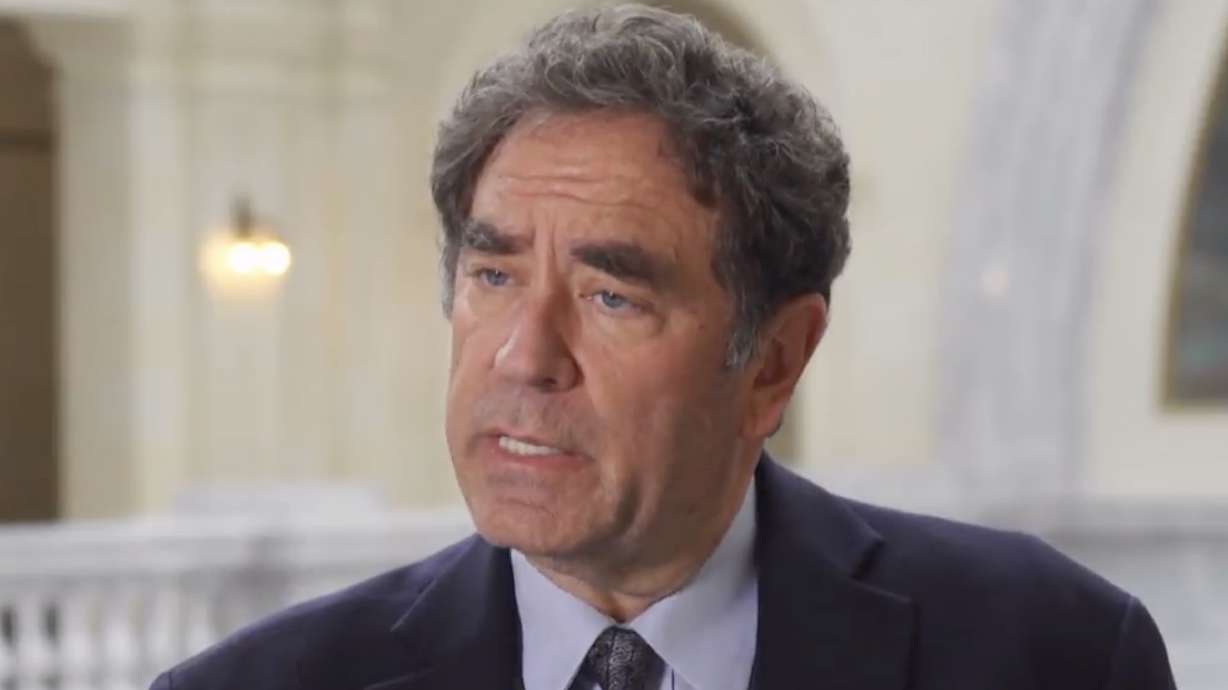Estimated read time: 5-6 minutes
This archived news story is available only for your personal, non-commercial use. Information in the story may be outdated or superseded by additional information. Reading or replaying the story in its archived form does not constitute a republication of the story.
SALT LAKE CITY – Based on what he's learned from prosecutors and a KSL investigation, a Utah lawmaker is calling for the legislature to reconsider HB227, a new self-defense law that went into effect in May.
"I think we should take another look at it simply because it was not well thought through, to begin with," said Rep. Brian King, D-Salt Lake City. King is adding his voice to those of some prosecutors and victims of crime who told KSL investigators the new law has had unintended consequences.
HB227 shifts the burden of proof for self-defense claims to prosecutors during a pre-trial justification hearing. If prosecutors cannot prove that an individual's use of force was not justified, the case is dismissed before it ever goes before a jury.
The new law closely mirrors a unique portion of Florida's Stand Your Ground Law and has already led to a murder charge being thrown out in Juab County.
"I worry that it increases the likelihood of vigilante thinking and vigilante behavior," said King, one of 17 state representatives who voted against HB227 earlier in 2021.
Critics also say the law incentivizes bogus claims of self-defense and is causing more delays in an already overburdened court system.

But HB227 was pitched as a way to save people who act in self-defense from the expense of defending themselves at trial.
"Currently, individuals who use their firearm in self-defense are subject to prosecution and often a costly jury trial," said Rep. Karianne Lisonbee, R-Clearfield, during a debate on the floor of Utah's House of Representatives in February.
Lisonbee sponsored the bill and debate on the House floor lasted less than 15 minutes. "Have the courts been consulted on this?" Rep. Andrew Stoddard, D-Sandy, asked during the debate.
"Yes, they have," Lisonbee replied. "And they participated in the drafting of this language as well as the companion resolution, HJR7."
In an interview with KSL, Lisonbee also referenced the courts' involvement multiple times.

"We worked with the courts on this bill to make sure that it was the right process," she said.
When asked directly whether the courts weighed in on the merits of the bill, Lisonbee stated, "The courts actually were able to create a motion in their rule through their emergency response team at the Supreme Court of Utah level that reflected the motion that is created in the bill. So, they worked directly with us on this."
The KSL Investigators followed up with the legislative liaison for the courts.
In an emailed statement, Michael Drechsel said it is true that the courts helped draft court procedures to accompany the bill and made language suggestions but confirmed the courts did not weigh in on the merits of the new law.
"In general, the substantive policy issues in HB227 were not the subject of input from the courts," he wrote. "Ultimately, the courts took no position on the legislation."
Related:
To make the case to her fellow lawmakers for why the bill was needed, Lisonbee referenced a Utah County case in which a man happened upon an apparent domestic violence situation and ended up shooting and killing the alleged aggressor — the details of the case line up with a 2019 case in Provo.
"This man acted in the defense of another person and was, had an, was involved in a drawn-out legal process for over a year for acting so bravely and nobly in the defense of others," she said. "I urge my colleagues' support of this bill." But the man in the Provo case who fired his weapon was never charged — a decision that prosecutors made six months later after reviewing the facts of the case.
"He had to, all that whole time, retain an attorney and go through the expense of an attorney before the case was dismissed," Lisonbee said in an interview with KSL when asked why she referenced the case.
KSL investigators pointed out that because the man was never criminally charged, HB227 would have had no impact on his case whatsoever.
"At the time, that case had not reached a conclusion," she said, referring to the date of the House debate on HB227.
But the decision was announced in December 2019 and widely reported, more than a year earlier.
"There may be some unintended consequences that are significant," King said during the debate on the bill, explaining why he would be voting against it.
In a recent interview, King said it's tremendously important that the statements legislators make about the proposed legislation they are sponsoring are accurate.
"Our credibility as legislators is on the line and it should be on the line," he said. "In a 45-day session, when you're talking about literally hundreds of bills that come before us, you have to rely on your colleagues."
King did not say whether he will propose changes to the law but said what he's learning now about how it's working in practice supports his reasons for voting against the bill's passage.
"I'm sad to see that those concerns have been validated to some degree," King said. "And that's why I think we need to revisit this." Lisonbee did not respond to a request for comment for this report.











